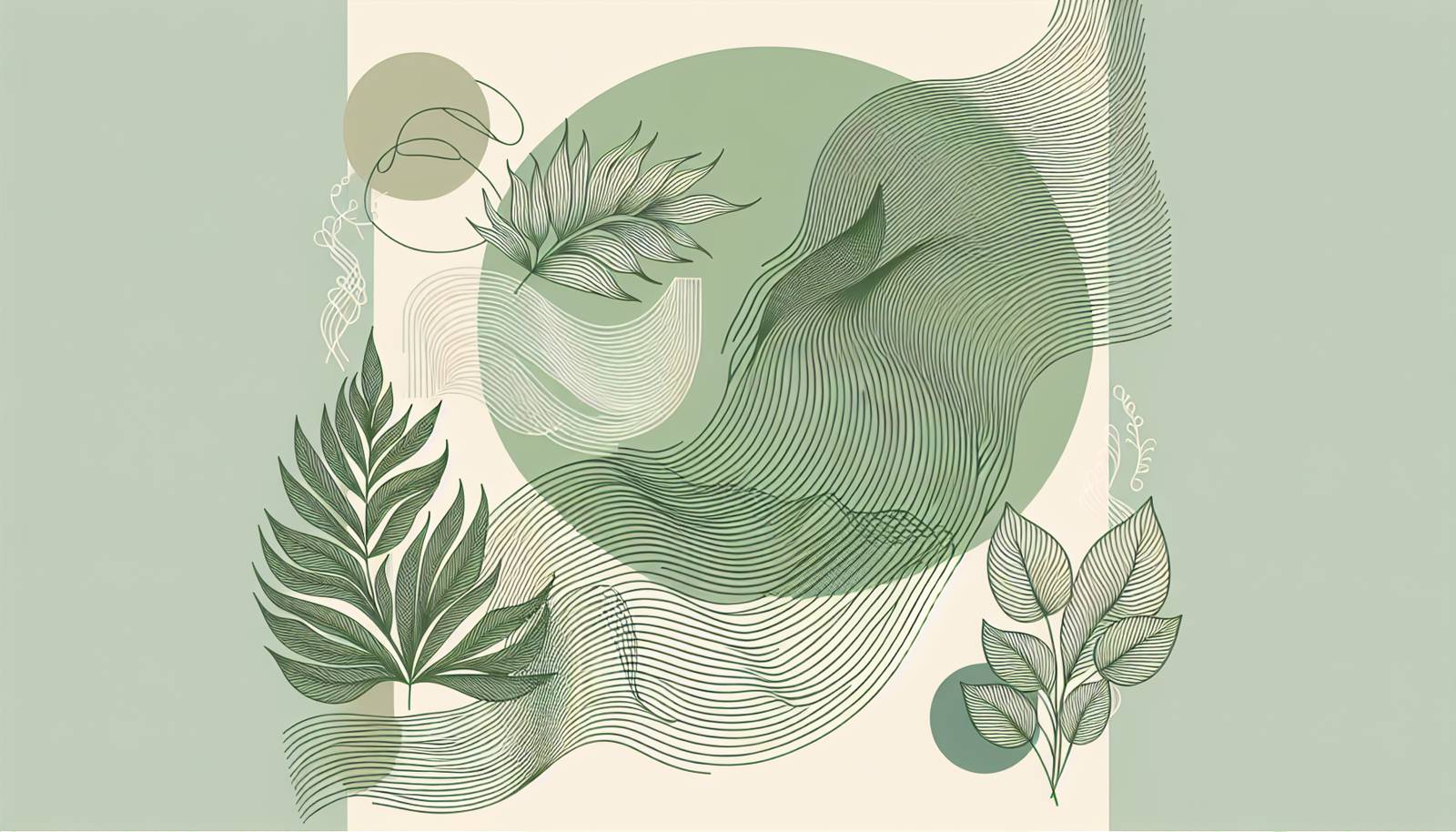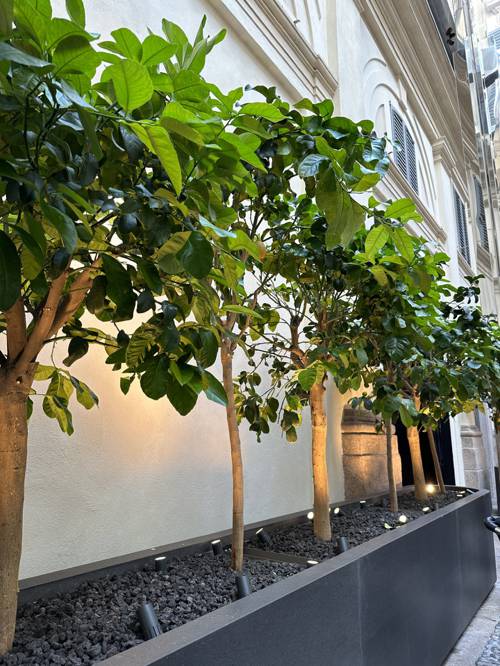
FAQ About Indoor Plant Music Interaction

Can music really affect the growth of indoor plants?
Yes, music can affect the growth of indoor plants. Scientific studies suggest that sound waves, primarily from music, can stimulate plant growth by causing micro-vibrations. These vibrations can enhance nutrient absorption and improve photosynthetic processes, promoting healthier plant growth. However, the extent of the effect can vary depending on the plant species and the type of music played.

What types of music are most beneficial for indoor plants?
Classical and soothing music tends to be the most beneficial for indoor plants. Studies indicate that genres like classical music, which have gentle and rhythmic sound waves, create a conducive environment for plant growth. Plants exposed to soft music generally show better growth compared to those exposed to harsher sounds like rock or heavy metal.

How long should I play music for my indoor plants each day?
It's generally recommended to play music for your indoor plants for around one to two hours per day. This duration provides sufficient time for the plants to experience the beneficial effects of the sound waves without overwhelming them. However, each plant may respond differently, so it's worth observing your plants' reactions and adjusting the timing accordingly.

Do all plants respond to music in the same way?
No, not all plants respond to music in the same way. Different species of plants may react differently to music due to variations in their biological makeup. Some plants may exhibit significant growth when exposed to music, while others may not show noticeable changes. It is important to experiment with different plants and observe any changes in growth patterns.

Is there scientific research supporting the effect of music on plants?
Yes, there is scientific research supporting the effect of music on plants. Studies have demonstrated that music can positively influence various growth parameters in plants, such as leaf size, root development, and flowering. Researchers believe that sound waves can stimulate cellular activities and biochemical processes that promote healthy plant growth.

Can playing music be harmful to indoor plants?
While playing music is generally not harmful to indoor plants, excessive loudness and inappropriate music genres can potentially stress the plants. Loud and abrasive music may create conditions that are unfavorable, leading to stunted growth or damage. Therefore, it is advisable to opt for soothing music at moderate volumes to ensure the well-being of the plants.

Are there specific experts who study the interaction between music and plant growth?
Yes, there are botanists and bioacoustics researchers who study the interaction between music and plant growth. These experts explore how sound waves and vibrations affect plant physiology and development. Their findings contribute to the broader understanding of how environmental factors, including sound, can influence plant health and productivity.

Does volume matter when playing music for plants?
Yes, the volume does matter when playing music for plants. It is crucial to maintain a moderate volume level to avoid stressing the plants. Excessive loudness can create disruptive vibrations that may harm the plants, while a moderate, soothing volume can facilitate a positive growth environment.

What are some signs that music is benefiting my indoor plants?
Signs that music is benefiting your indoor plants can include improved growth rate, larger leaf sizes, vibrant colors, and overall healthier appearance. If your plants seem to be thriving and producing more foliage or flowers, it might indicate that the music is having a positive impact.

Can indoor plants hear music like humans do?
Indoor plants cannot hear music in the same way humans do, as they lack auditory organs. However, they can sense the vibrations and sound waves produced by music, which can trigger physiological responses within the plant. These responses can lead to changes in growth patterns and overall plant health.

What role do vibrations play in plant growth when exposed to music?
Vibrations play a crucial role in plant growth when exposed to music. Sound waves cause micro-vibrations in plant cells, which can enhance nutrient uptake, stimulate growth hormones, and improve cellular function. These vibrations help boost the plant's metabolism, facilitating better growth and development.

Is there a preferred music playlist for promoting plant health?
While there isn't a universally preferred music playlist, many gardeners and plant enthusiasts recommend classical music or sounds from nature, like flowing water and birdsong, for promoting plant health. Creating a playlist with soft, harmonious music can help simulate a natural, relaxing environment for plants.

Are there any myths regarding music and plant growth?
Yes, several myths exist regarding music and plant growth. One common misconception is that plants have the ability to understand or enjoy music like humans do. In reality, plants respond to the physical vibrations from sound waves, rather than the musical content itself. It's also a myth that loud music invariably enhances growth, as excessive sound can actually harm plants.

How quickly can music influence plant growth?
The influence of music on plant growth can vary, but some changes might be noticeable within a few weeks of regular exposure. Factors such as the plant species, the music's type and duration, and environmental conditions all play a role in how quickly music might impact growth. Long-term exposure is generally more effective for observing significant growth changes.

Can music affect the flowering of indoor plants?
Yes, music can affect the flowering of indoor plants. Certain types of music, particularly those with harmonious and rhythmic qualities, can influence the hormonal changes necessary for flowering. This effect is more observed in plants that are naturally inclined to respond to environmental stimuli like sound.

Is there any difference in the response of indoor and outdoor plants to music?
Yes, there can be differences in the response of indoor and outdoor plants to music. Indoor plants might experience more pronounced effects due to controlled environmental conditions, while outdoor plants could have their response influenced by additional factors like weather and external noise. However, the basic principles of vibration and growth stimulation apply to both.

How should I select music specifically for my plant's needs?
Selecting music for your plant involves understanding your plant's specific requirements and observing its response to different types of music. Starting with soft, classical music is usually a safe choice. Monitor how your plants respond, and consider adjusting the music based on their growth patterns and apparent health.

Can plants recognize different genres of music?
Plants cannot recognize different genres of music as humans do. Instead, they respond to the physical properties of sound waves, such as frequency and amplitude, rather than the music's emotional or artistic content. Certain frequencies might promote more growth-oriented responses, regardless of the music genre.

What is the role of frequency in music for plant growth?
Frequency plays a significant role in how music affects plant growth. Sound frequencies can create specific vibrations that the plant cells might interpret positively. Lower frequencies, often found in classical and ambient music, tend to be more beneficial for promoting healthy plant development.

Are there cultural practices that involve playing music to plants?
Yes, various cultures have long-standing practices that involve playing music or chanting to plants. In ancient civilizations, sound was believed to harmonize with the spiritual and physical aspects of nature, including plants. Modern gardeners and horticulturists may incorporate music into plant care as part of a holistic approach to encourage growth and well-being.
